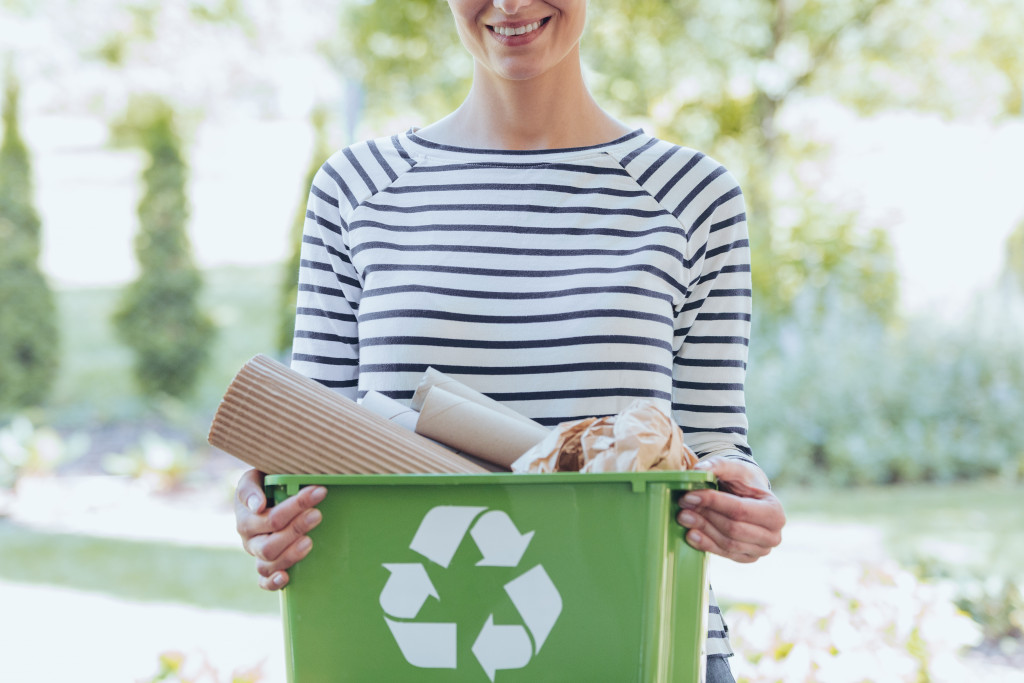It’s essential for homeowners to recycle because it can save them money and help the environment. According to the Environmental Protection Agency (EPA), recycling helps divert waste from landfills and incinerators, saving landfill space. It also reduces the pollution created when making new products from virgin materials. Recycling conserves energy and natural resources, like water and timber, that would otherwise create new items. In addition, recycling creates jobs and stimulates the economy.
According to the National Recycling Coalition (NRC), recycling and composting create 1.5 million jobs in the United States. These jobs include waste reduction professionals, material recovery facility (MRF) operators, truck drivers, engineers, architects, and accountants. The recycling industry generates $236 billion in economic activity each year and recycles 34 percent of the nation’s municipal solid waste stream. Homeowners can feel good about helping the environment and creating jobs by recycling paper, plastic, glass, and metal products.
However, you might realize that starting recycling at home can be a profitable business idea. If you have the space and resources, you can turn recycling into a business that makes money. Here are a few ways to make money from recycling.
Maintaining a System for Common Recyclable Items
The first step is to set up a system for collecting typical recyclables, such as aluminum cans, plastic bottles, and glass jars. You can do this by setting up bins in your garage or shed. You can also ask family, friends, and neighbors to save their recyclables for you. Once you have a good collection of recyclables, you can take them to a recycling center or redeem them for cash at a bottle depot.
Homeowners looking to benefit from recycling should have a plan for every common recyclable household item, including:
-
Aluminum Cans
Many municipalities have recycling programs for aluminum cans. You can also take them to a scrap metal dealer or a bottle depot. The average price for aluminum cans is $0.35 per pound.
-
Plastic Bottles
Plastic bottles can get recycled through most municipal recycling programs. You can also take them to a bottle depot. The average price for plastic bottles is $0.10 per pound.
-
Glass Bottles
Glass bottles can get recycled through most municipal recycling programs. You can also take them to a bottle depot. The average price for glass bottles is $0.25 per pound.
-
Paper
Paper can get recycled through most municipal recycling programs. You can also take it to a recycling center. The average paper price is $0.15 per pound.
-
Metal
Metal can get recycled through most municipal recycling programs. You can also take it to a scrap metal dealer or a recycling center. The average metal price is $0.05 per pound.
You can start profiting from recycling by simply taking advantage of municipal recycling programs. However, you can make more money by taking your recyclables to a bottle depot or a recycling center.
A Bottle Depot is a recycling center that buys empty drink containers from the public and pays out the deposit paid when the container got purchased. Bottle depots typically pay between $0.05 and $0.20 per container. For example, if you bring in 1,000 plastic bottles worth $0.10 each, you would receive $100.
Turning Food Scraps into Profits

It might be ideal to avoid wasting food, but sometimes food gets wasted no matter how hard people try. According to the USDA, the average American family throws away $640 worth of food each year. It amounts to about 20 percent of the food that families purchase.
Food scraps can get recycled into animal feed, compost, and biofuel. You can also sell your food scraps to local farmers or anaerobic digesters.
-
Animal Feed
Feed is typically from corn, soybeans, and other grains. However, it can also be from food scraps. Food scraps that can be animal feed include fruit and vegetable peels, eggshells, coffee grounds, and stale bread.
-
Compost
Compost is organic matter that has been decomposed and can be a soil amendment or fertilizer. Food scraps that can get composted include fruit and vegetable peels, coffee grounds, eggshells, and stale bread.
-
Biofuel
Biofuel is a renewable energy source made from organic matter. Food scraps that can become biofuel include vegetable oil, cooking oil, and animal fat.
To make money from food scraps, you should consider setting up a collection system. You can do this by setting up bins in your kitchen or garage. You can also ask family, friends, and neighbors to save their food scraps for you. Once you have a good collection of food scraps, you can take them to a local farmer or anaerobic digester.
Local farmers can use food scraps as animal feed. Anaerobic digesters can use food scraps to create biofuel. The average price for food scraps is $0.10 per pound.
Used cooking oil will also be ideal to profit from, especially when you partner with a UCO recycling company. It might be challenging to convert at home, making it necessary to let professionals handle the process.
Final Thoughts
Recycling is a great way to reduce waste and make some extra money. You can start recycling by taking advantage of municipal recycling programs or taking your recyclables to a bottle depot or recycling center. You can also turn food scraps into animal feed, compost, or biofuel.



